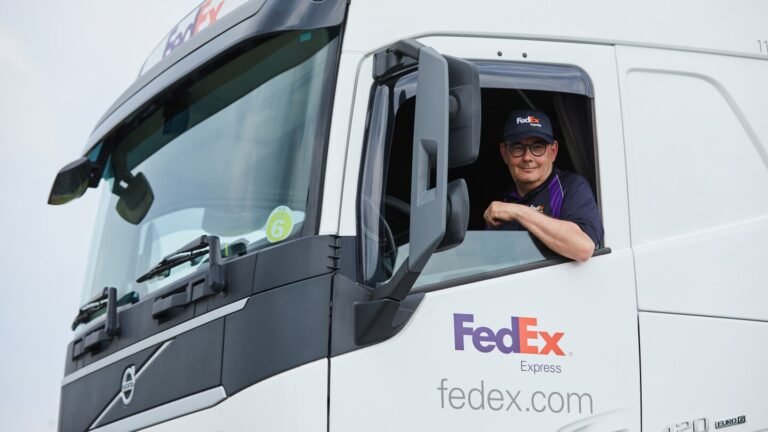FedEx Express Europe, a subsidiary of FedEx Corp. (NYSE: FDX) and the world’s largest express transportation company, has begun using renewable diesel — made from organic or waste materials — to fuel part of its company-owned trucks in the Netherlands.
Starting in early November, FedEx Express has instructed drivers of these heavy, long-haul vehicles to refuel with renewable diesel as an environmentally friendly alternative to fossil diesel. The trucks will use this fuel when they leave the recently reopened FedEx Express hub in Dauphin, the Netherlands.
Decarbonising heavy transport is more challenging than parcel pick-up and delivery, with the carrier already setting a target of moving to an all-electric fleet by 2040. The range of miles required, the time required to refuel, and the fact that by the nature of their work, heavy vehicles travel between regions means they often require refuelling in multiple countries.
“Using synthetic diesel offers an interim solution that has the potential to reduce well-to-wheel carbon emissions by up to 80-90% per litre. This means that while technological solutions are still being developed to help the industry transition away from fossil fuels entirely, we can already make decisions to impact carbon emissions at the first mile of our trucking network – those generated by our own vehicles,” said Vinay D’Souza, Senior Vice President, Planning and Engineering, FedEx Express Europe.
The opportunity to reduce emissions in road transport using this fuel depends not only on fuel supply, but also on infrastructure. FedEx Express’ use of this renewable diesel is currently limited to the Netherlands, where its use is encouraged on continental routes from the Netherlands.
FedEx’s goal, announced in March 2021, to achieve carbon-neutral operations globally by 2040, includes all FedEx-owned and operated transportation including package pickup and delivery, the company’s extensive European trucking network, and aircraft. It also includes the company’s Scope 3 emissions generated by contracted transportation services that play a role in the FedEx network. By demonstrating support and adaptation for diesel alternatives, FedEx is striving to make alternative fuels more viable, scalable, and ultimately accessible across the industry, as solutions to decarbonize challenging transportation sectors in Europe.





